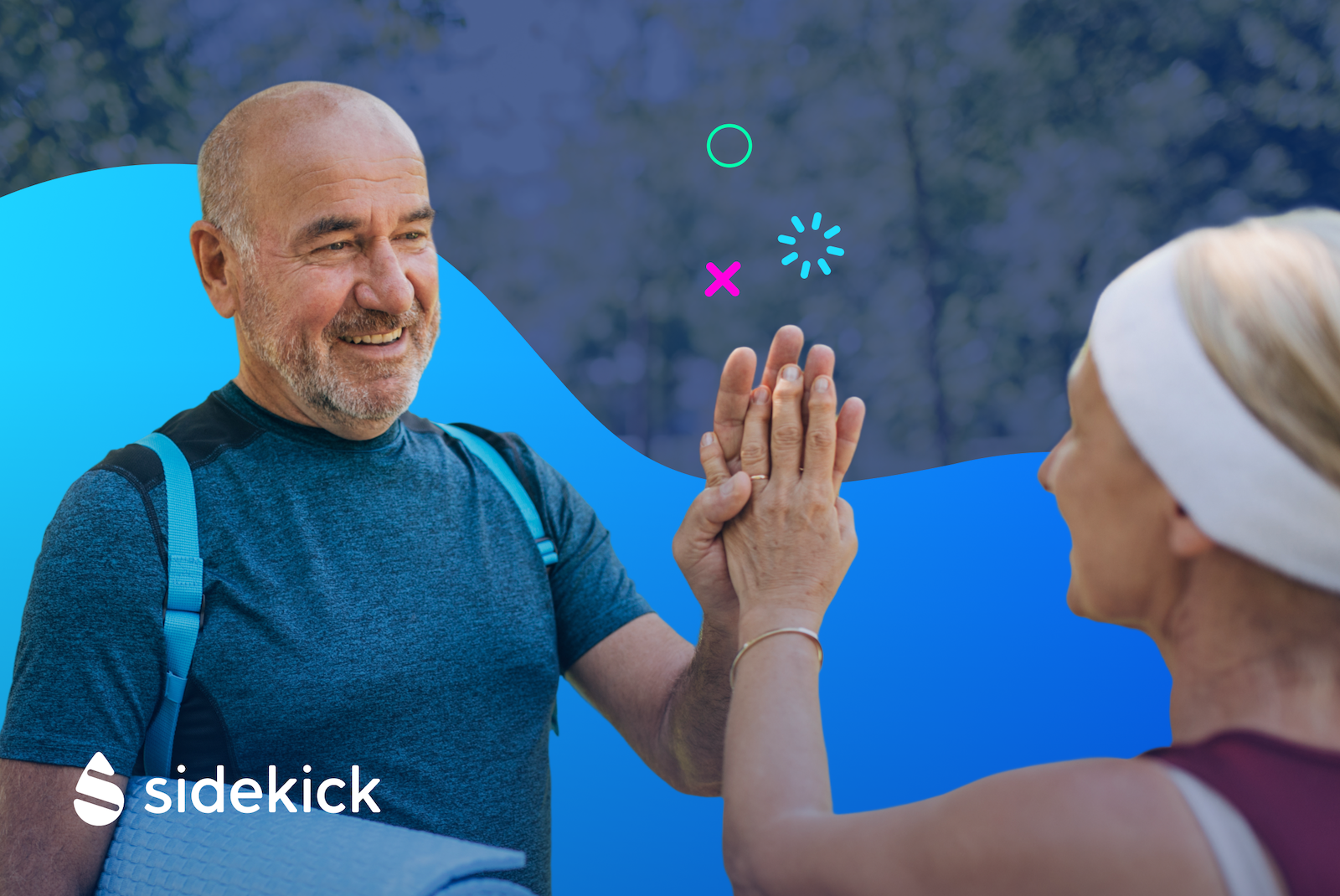
How Digital Health Can Transform Cancer Care
Digital health is transforming many areas of health, including one of the most emotive and feared … cancer.
Cancer care involves a variety of treatments, including drugs, radiotherapy, immunotherapy, and psychotherapy. It also requires a team of healthcare professionals, support workers, and caregivers. In many cases, it also requires significant lifestyle changes.
These are all vitally important, however, integrating digital health technologies into this complex ecosystem of care can have a transformative impact. This article looks at seven possibilities.
1. Prevention
It would be great if technology could actually prevent us from getting cancer in the first place. Predicting our cancer risk is a solid step in this direction. If we know what we are up against, we can prevent or catch cancer early by making lifestyle changes or testing regularly.
- 23andMe's genetic test for a prostate cancer biomarker was cleared by the FDA this year. Studies have shown that this biomarker increases a person's risk factors for developing the disease.
- Verily and L’Oréal have partnered on skin research and new wearable devices including a wearable UV sensor that could help manage skin cancer risk.
2. Screening
Screening tools that help detect potential cancer can be the difference between early detection and treatment, and catching it too late.
- The DotPlot tool helps detect breast cancer at home. Users press the handheld device over their chest once a month, and sound waves are used to record breast tissue composition. If there are any suspicious changes or abnormalities, users are advised to see a healthcare professional.
- Tools and apps for detecting skin cancer are multiplying, although the FDA has urged caution in the use of these apps. The key risk is false negatives where people are left unaware of their cancer.
3. Detection
A range of novel detection techniques for cancer are being developed, which promise to be rapid and minimally invasive.
- The UK NHS is trialing a blood test that aims to detect more than 50 types of cancer.
- And Roche and Freenome have partnered to develop cancer blood tests.
- The National Institute of Health (NIH) has started a project to detect cancer using vocal biomarkers. The project will involve studying changes in people's voice patterns to see if they can be used to predict cancer.
- And what about detecting cancer by smell? Recently researchers found an ‘electronic nose’ can distinguish between people with and without lung cancer.
Talk to us about implementing digital-first health solutions.
Want to learn more about implementing digital-first health solutions?

4. Diagnosis
When it comes to diagnosis, artificial intelligence and machine learning are the next big thing. There are countless research projects and use cases that are driving this field forward.
- The FDA recently approved ProstatID software for detecting prostate cancer using AI in conjunction with MRI scans. This could lead to earlier detection than conventional methods and ultimately lives saved.
- And is AI more accurate than doctors? A recent study showed doctors using AI catch breast cancer more often than either does working alone.
5. Treatment
Digital health has the potential to enhance the treatment paradigm in oncology. Digital therapeutics (DTx) are an important and growing area in this respect.
- Sidekick Health has partnered with Eli Lilly to develop an integrated solution for patients with breast cancer. The program focuses on physical activity, diet, sleep and stress management, as well as medication adherence.
- Blue Note are partnering with Curebase to develop a range of cancer therapies including treating anxiety and depression in adults with acute myeloid leukemia (AML).
- King's College London and GSK are collaborating using AI and genetics to understand why and how some patients respond to certain cancer treatments. This will help support clinical decision making around treatments and improve patient outcomes.
6. Support
Digital health can provide critical support to patients fighting cancer in several ways.
- Electronic symptom tracking has been shown to improve cancer patients' quality of life, and physical function. In this study, if patients reported severe or worsening symptoms, their care teams were alerted.
- In the UK, Guy’s and St Thomas’ used a simple text message service to help cancer patients share anxieties. And a smartphone app increased patients' adherence to breast cancer treatment plans. Patients who used the app were more likely to adhere to multidisciplinary treatment plans versus those who didn’t.
7. Post Recovery
And once cancer is hopefully vanquished, often residual fear and pain live on. Digital technologies are also offering support in this area.
- A digital health program in Australia is helping childhood cancer survivors be more active. Often they face barriers to returning to physical activity which can cause health problems later in life.
- And a digital tool is helping patients manage their fear of cancer recurrence. It has proven effective and offers modules containing interactive exercises on goal setting, attention training, and mindfulness.
- And wearable devices are being used to help childhood cancer survivors treat pain that lingers on after the disease has gone.
Final Thoughts
The above are just seven areas out of many potential applications of digital health in oncology. Many of these new technologies are being developed and implemented today, with more promising technologies being trialed for future use. Digital health technologies will continue to get better at helping patients, caregivers, and clinical teams fight this disease.
%20(1).png)
Join our growing list of partners! Sign-up for The Sidebar now. (Don’t worry, you can unsubscribe at any time.)
About the author

Gary Monk
Digital health thought leader, writer, and speaker.



.svg)



.png)


.jpg)
.jpg)


.jpg)



.jpg)

.jpg)



.jpg)



.jpg)
.png)

.jpg)
.jpg)


.jpg)
.jpg)
.jpg)
.jpg)
%201%20(1).jpg)

.jpg)
%201%20(1).jpg)
.jpg)
.jpg)




.jpg)
.jpg)

.jpg)
.jpg)
.png)
.jpg)

.jpg)
.jpg)

.jpg)
.jpg)
.jpg)

.png)

.jpg)
.jpg)

.jpg)

.jpg)
.jpg)

.jpg)

.jpg)

.jpg)
.jpg)




.jpg)



.jpg)
.jpg)
.jpg)
.jpg)
.jpg)
.jpg)


.jpg)
.jpg)
.jpg)




.jpg)


.jpg)
.jpg)